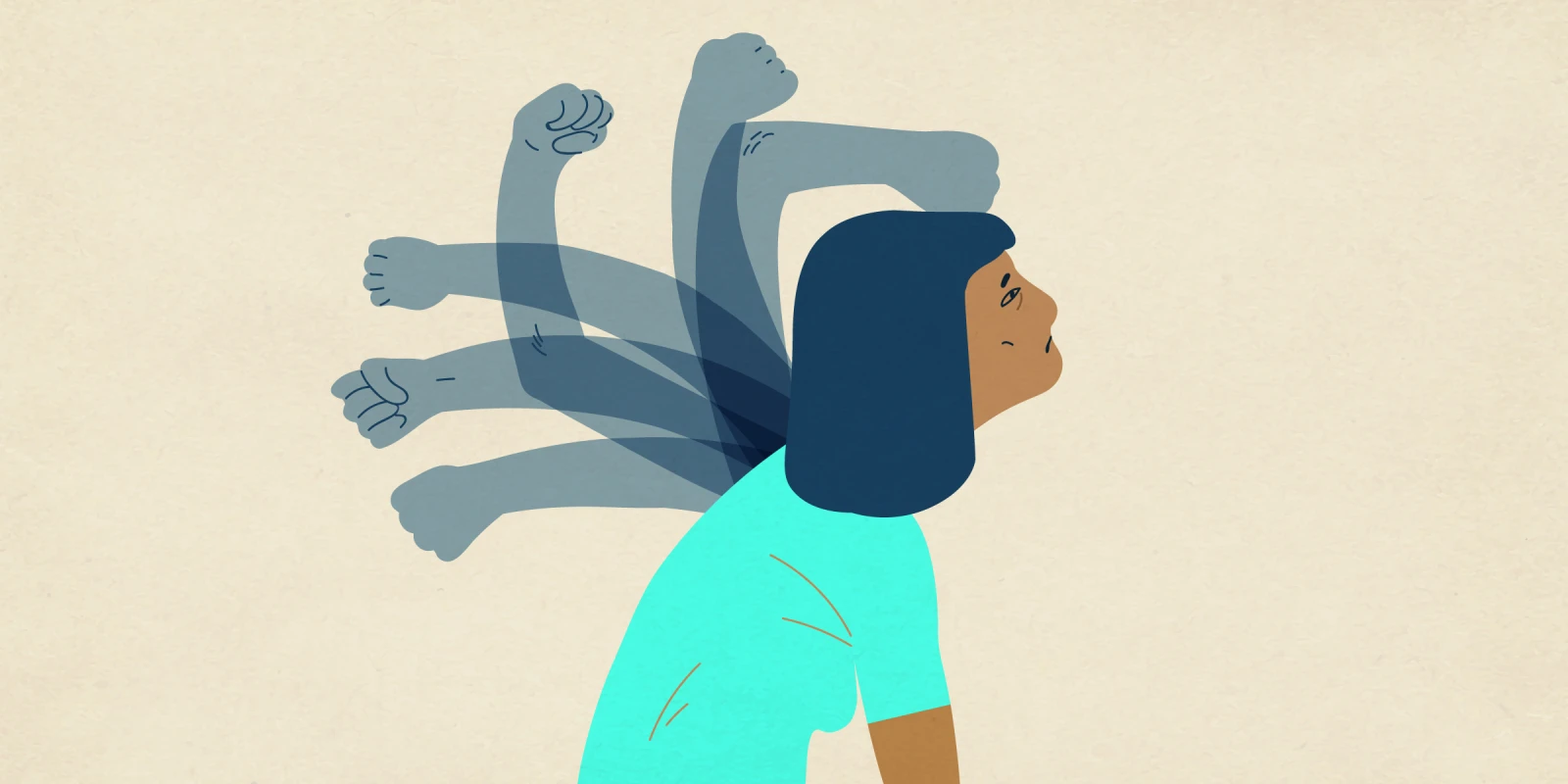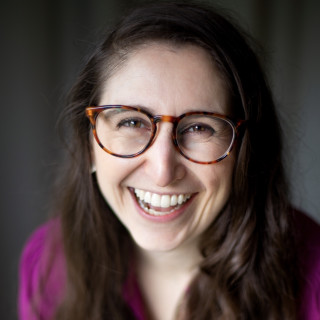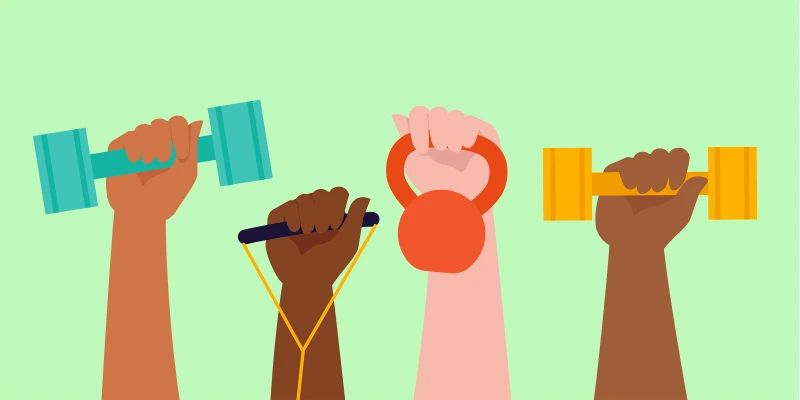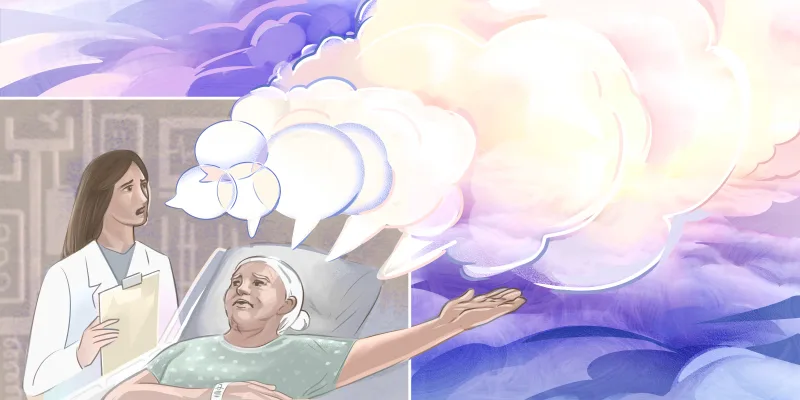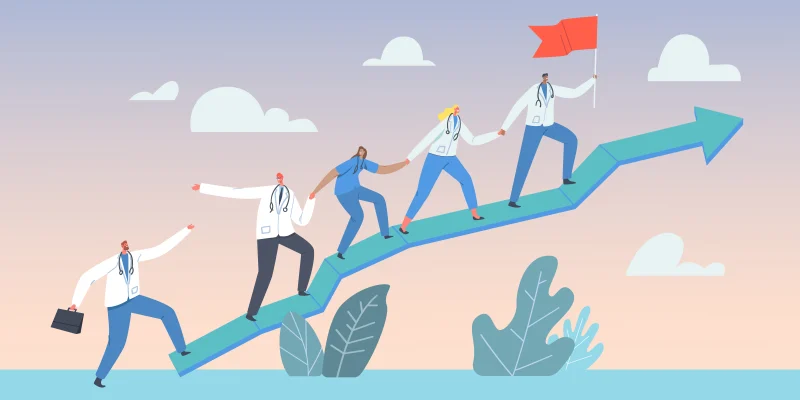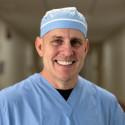In September, I spent approximately 30 minutes in an exam room with a patient I had never met before. Before I entered the room, the patient spent 10 minutes inside it alone — and he took off his mask. When I entered, he put it back on, and I spent the visit trying to convince him that the cause of his intermittent chest pressure and palpitations with normal vitals and a normal exam was most likely his uncontrolled, unmedicated diabetes. We negotiated something he might be willing to try.
None of this mattered.
Forty-eight hours later he called the clinic back with a low-grade fever and dry cough.
Seventy-two hours later, he had a positive COVID-19 test.
… And then another 72 hours later, so did I.
… And another 72 hours later, so did my husband.
This patient had his temperature checked before entering the clinic. He was wearing a mask during our exam. He denied any high-risk symptoms, exposure, travel — the same questions every clinician is asking every patient. I was wearing my standard-issue surgical mask — to be changed every three days per clinic policy — and my face shield, wiped down with alcohol each night. I have a decontamination zone in the front of my home where I ditch my shoes, throw my scrubs in the wash and proceed straight to the shower. I hadn’t gone in a store, seen the inside of a friend or family member’s home, or touched a door knob in six months. So how did I get COVID-19?
I assume it was my September patient, assuming that his unmasked breathing all over the tiny exam room created a sea of virus that I swam in for too long.
***
“You lost 30 pounds in the past nine months. How’d you do it?” I asked my patient.
“I had COVID-19 this fall and had a fever for three weeks.”
“Oh. I’m so sorry to hear that.”
She told me how her cousin who worked in a factory was told he couldn’t go to work one day because he had a temperature too high to enter the factory, but he felt just fine. The cousin asked her husband if they could employ him for the day, and the husband, knowing the cousin lives paycheck to paycheck, let him come and work. They were all sick within days. As her fever raged on, my patient called her family outside the U.S., asking them to pray for them. Her husband disparaged her willingness to talk about contracting COVID-19 — believing somehow that by acknowledging their illness they could be accused of being unsanitary, of not taking things seriously, of living in conditions worse than those they had fled in their birthplace.
She told me how they fought the virus and one another, turning over and over the question of shame in a country obsessed with personal responsibility.
“We did a nice thing for him,” she relayed to me, “why would I be ashamed I got sick?”
***
Shame, to paraphrase Brene Brown, is the fear that we are simply not good enough, and it grows in secrecy, judgment, and silence. The antidote, Brown asserts, begins with awareness, courage, and a safe place to talk about the shame we are feeling. When we talk about shame, we open up a whole new conversation where empathy can flourish.
In general, I’m fairly comfortable with disclosure in the clinical setting. A willingness to discuss shared experience has earned me a reputation as someone approachable, and so, it feels a little out of character to not talk about my COVID-19 experience with patients.
For a long time, I chalked up my resistance to nihilism, and the dark, dreadful, spiraling doom it spawns: “If I got COVID-19 doing everything right, then there’s no hope. We are all doomed and all I plan to do is ride this log flume to the bitter end and cling on to these antibodies like the life preserver I hope they are.”
Maybe it’s better to just ignore my personal narrative in this global pandemic and get back on the wagon. Maybe I should just help people manage their symptoms where and when it’s possible. Maybe it’s better to not tell my story than to fear what people will think and say.
But if I’m really honest, what I felt — and what I sometimes still feel — is a deep sense of shame. I felt shame when my PPE failed me, that I had somehow failed my nursing teachers from so long ago. I felt shame that I failed to break the chain of infection, exposing my husband. And I felt shame that I call myself a health care provider, someone skilled and capable of advising others, but one who could not even keep herself safe.
Getting COVID-19 in the U.S. feels shameful to me because it feels like I didn’t do enough — that my very best was not enough. There’s no room in this narrative to acknowledge how criminal mismanagement happened at the national level, creating a chasm where states, cities, businesses, and individuals have had to manage fear and chaos while facing impossible choices and conflicting demands. Shame about exposure to COVID-19 is deeply rooted in the American obsession with self-reliance, a dangerous addiction to the myth that any dragon can be slayed with enough personal enthusiasm and ingenuity.
It’s a myth. We cannot individually bleach wipe ourselves out of the reality that we are all connected in a fragile web. Getting control over the COVID-19 pandemic has proved impossible in the U.S. because so many of us would rather hold onto the fable of individuality than save our neighbors.
You can stop the spread of COVID-19 through quarantine and physical isolation. But, perhaps we, collectively, will only begin to stop the spread of COVID-19 when we understand our connection.
What would it mean to ask for empathy from my patients, or from you, my colleagues? Are we ready for that? What would it take to liberate us from shame?
Dana Kroop is a family NP based in Chicago, Illinois. Originally trained in the history and philosophy of science at University of Chicago and Cambridge University, she spent her first professional years working in education at The Field Museum of Natural History. Driven to use science communication to best empower individuals, she then decided to become a family NP, training at the University of Illinois under a HRSA funded ANEE Traineeship, and then completing her post-graduate residency at Community Health Center, Inc. Dana is a bilingual Spanish speaker and currently works at a Federally Qualified Health Center on Chicago's West Side. She is a 2020–2021 Doximity Op-Med Fellow.
Click here to see more perspectives on COVID-19 from the Doximity network.
Click here for up-to-date news about COVID-19 on Doximity.
